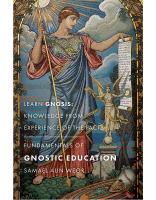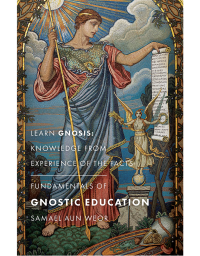Except for those who are totally disabled, every human being has a purpose to serve in life; the difficult thing is to know what that purpose is.
If there is something truly important in this world, it is to know ourselves; yet, rare are those who know themselves. Moreover, even if the following statement seems incredible, it is difficult to find a single person in this life who has his vocational sense developed.
When someone is totally convinced about the role that one has to perform in one’s existence, one then makes an apostleship, a religion out of one’s vocation, thus, becoming—as a fact and by one’s right—an apostle for humanity.
The one who knows one’s vocation, that is, the one who manages to discover it by oneself, passes through a tremendous change. That one no longer seeks success; little is one’s interest in money, fame, and gratitude. One finds bliss in the enjoyment granted by the fact of having responded to an intimate, profound, and unknowable call of one’s own internal Essence.
The most remarkable fact of all this is that vocational sense has nothing to do with the “I,” and even if this seems strange, the fact is that the “I” abhors our own vocation, because the “I” only craves lucrative monetary earnings, position, fame, etc.
Vocational sense is something that belongs to our own inner Essence; it is something very internal, very profound, very intimate.
Through the vocational sense, the Essence undertakes the most tremendous projects with true boldness and disinterest, risking all types of sufferings and Calvaries. Thus, this is why it is hardly unusual that the “I” abhors true vocation.
Indeed, it is through the vocational sense that we march along the path of legitimate heroism, even when we have to stoically endure all types of infamies, treacheries, and slander.
When a human being can truthfully say, “I know who I am and what my true vocation is,” from that moment that individual will begin to live with true uprightness and love. Such types of people live in their work, and their work lives in them.
Indeed, the people who can talk like this with true sincerity of heart are very few, since those who talk like this are the selected, the chosen ones, who developed their sense of vocation in a superlative degree.
Thus, to find our true vocation is indubitably the most serious social problem; this indeed is the problem at the very foundation of all societal problems.
To find or discover our true, individual vocation is factually equivalent to discovering a very precious treasure.
When a citizen finds one’s true and legitimate occupation with complete certainty and without the slightest doubt, one becomes—because of this sole fact—irreplaceable.
When our vocation totally and absolutely corresponds to the occupation we fulfill in life, we then perform our job as a true apostleship, without any covetousness and without any drive for being in command. Thus, when the job does not give rise to covetousness within us, boredom, or a desire to change our occupation, it instead brings us true, profound, intimate bliss even when we have to patiently undergo a painful Via Crucis.
In practicality, we have been able to verify that when the occupation does not correspond to the individual’s vocation, then this one only thinks in terms of “more than.”
The “I” uses the mechanism of “more than:” “More money than, more fame than, more projects than,” etc., and as is hardly natural, it usually twists the subject into an hypocritical, exploitative, cruel, merciless, and intransigent person, etc.
If we study bureaucracy in detail, we can then provide evidence that very seldom does a government job correspond to the individual’s vocation.
If we study the proletariat’s different trade unions in detail, we can then confirm that a job corresponds to the individual’s vocation only on very rare occasions.
When we carefully observe the privileged classes—whether from the East or West of the world—we can then see their total lack of a vocational sense. These so-called “rich kids”—in order to kill boredom—now perform armed assaults and rape defenseless women, etc. Not having found their place in life, they go around disoriented and become rebels without a cause “just to pass the time.”
The chaotic state of humanity in these times of world crisis is frightful.
No one is happy with their work because their positions do not correspond to their vocations. Job applications might pour like rain because no one in particular wants to starve to death; nevertheless the applications do not correspond to the applicants’ vocations.
Presently, many drivers should be doctors or engineers. Many lawyers should be ministers, and many ministers should be tailors. Many shoe-shiners should be ministers, and many ministers should be shoe-shiners, etc. Yes, many people are in occupations that do not correspond to them—that is, their occupation has nothing to do with their true, individual vocation. This is why the social mechanism is functioning in an awfully wrong way. It is similar to an engine manufactured with parts that do not correspond to it; thus, inevitably, the outcome has to be disaster, failure, an absurdity.
In practicality, we have been able to completely verify that when someone does not have the vocational disposition to be a guide, religious instructor, political leader, or a director of some spiritual, scientific, literary, or philanthropic association, then that one only thinks in terms of “more than” and is only dedicated to organize projects and more projects with reprehensible secret purposes.
It is obvious that when the position does not correspond to the individual’s vocation, the outcome is exploitation.
In these terribly materialistic times in which we live, many merchants arbitrarily occupy the teacher’s occupation who do not even remotely have the vocation for the teaching profession. Thus, the outcome of such infamy is exploitation, cruelty, and a lack of true love.
Many people practice the teaching profession with the exclusive purpose of earning money so that they can pay for their studies in the school of medicine, law, or engineering—or simply because they cannot find anything else to do. The victims of this intellectual fraud are students.
The greatest joy that students of schools, colleges, and universities can ever have is true vocational teachers, yet in this day and age they are very difficult to find.
Gabriela Mistral wisely translated a teacher’s vocation by a verse of moving prose, entitled “The Prayer of the Teacher.” This rural teacher stated the following when addressing the divine, the secret master:
“Grant me solely the love of my school; may not even the blazing of beauty be capable of stealing—at all moments—my tenderness to it. Master, make my fervor be everlasting and my disenchantment transitory. Yank from within me this impure desire of misjudged justice that still disturbs me, the wretched insinuation of protest that rises from within me when they hurt me. May not the incomprehension of those whom I taught wound me; may not their forgetfulness sadden me.
“Make me more motherly than mothers so that I will be able to love and defend like them what is not flesh of my flesh. Give me the needed talent to make of one of my girls my perfect verse, thus endowing within her my most penetrating melody, to be uttered when my lips can sing no more.
“Expound the possibility of your gospel in my time, so that —for it—I will not renounce the daily and hourly battle.”
Who is capable of measuring the marvelous psychic influence of a teacher like this, who, because of her vocational sense, became inspired with so much tenderness?
An individual finds one’s vocation by means of one of three ways:
- First, the self-discovery of a special capacity.
- Second, the vision of an urgent necessity.
- Third (though very seldom), the guidance of parents and teachers who discovered a pupil’s vocation through observing their aptitudes.
When facing a serious situation that demanded an immediate action, many individuals have discovered their vocation in a specific and critical moment of their life. I.e., Gandhi was an ordinary lawyer, yet, because of an attempt against the rights of South African Hindus, he cancelled his return trip to India and stayed to defend his compatriots’ cause. Thus, this momentary need led him towards the vocation of his entire life.
Humanity’s great benefactors found their vocation when facing a critical situation demanding immediate action. Let us remember Oliver Cromwell, the father of English liberties; Benito Juarez, the founder of modern Mexico; Jose De San Martin and Simon Bolivar, fathers of South American independence, etc.
Jesus the Christ, Buddha, Muhammad, Hermes, Zoroaster, Confucius, Fu-Xi, etc., were men who, in a specific moment of history, knew how to comprehend their true vocation and felt the call of that internal voice that emanates from their Innermost.
To discover the latent capacity of students by means of diverse methods, a fundamental education is required.
Indubitably, the methods used by obsolete pedagogy, to discover the vocation of pupils in this day and age, are cruel, absurd, and merciless.
The vocational questionnaires have been created by merchants who arbitrarily occupy the position of teachers.
In some countries, before entering primary and vocational colleges, pupils are submitted to the most horrible psychological cruelties. They are asked questions on mathematics, civics, biology, etc.
The most cruel aspect amongst these methods are the famous psychological tests, the IQ index, which are intimately related with mental swiftness.
Thus, according to the answer type and how these are graded, the student is then bottled up into one of three baccalaureates:
- First: Physics-Mathematics.
- Second: Biological Sciences
- Third: Social Sciences.
1. Engineers, architects, astronomers, pilots, etc., come from Physics-Mathematics.
2. Pharmacists, nurses, biologists, physicians, come from Biological Sciences.
3. Lawyers, writers, doctors of philosophy, managing directors come from Social Sciences.
Each country’s program of study is different, and it is clear that the three different baccalaureates do not exist in all countries. In many countries, only one baccalaureate exists, and the student enters university upon completion of it.
In some nations, students’ vocational ability is not tested; thus they enter any school with the desire of having a profession to earn a living, even when this profession does not coincide with their innate predispositions, that is, with their vocational sense.
So, there are countries where students’ vocational ability is examined, and there are nations where it is not examined. It is an absurdity to not know how to guide students vocationally. It is an absurdity to not test their genuine abilities and innate tendencies.
Vocational questionnaires and all jargon of questions, psychological tests, IQ indexes, etc., are stupid. Yes, those methods for vocational examinations are useless, because the mind has its moments of crisis and if the examination is performed in one of those moments, the outcome is failure and disorientation for the student.
Teachers have been able to verify that a student’s mind has, like the sea, its high and low tides, its plus and its minus. As there is a biorhythm in masculine and feminine glands, likewise there is a biorhythm for the mind.
At specific times, the masculine glands are found in plus and the feminine glands in minus, or vice-versa. Likewise, the mind has also its plus and its minus.
For those who want to know about the science of biorhythm, we suggest they study the famous book entitled Biorhythm written by the eminent Rosicrucian Gnostic sage, Dr. Arnold Krumm-Heller, Colonel-Physician of the Mexican Army and Professor at the School of Medicine in Berlin.
We emphatically affirm that when facing the difficult situation of a vocational exam, an emotional crisis or a state of psychic nervousness can lead the student to failure during the prevocational exam.
We affirm that any abuse of the motor center—produced perhaps by sports or by an excessive walk or by an arduous physical work, etc.—can originate an intellectual crisis, even if the mind is found in plus; thus it can lead the student to failure during the prevocational exam.
We affirm that any crisis related with the instinctual center, perhaps in combination with sexual pleasure or with the emotional center, etc., can lead the student to failure during a prevocational exam.
We affirm that any sexual crisis, i.e. a stressful event of suppressed sexuality, or sexual abuse, etc., can exert its disastrous influence over the mind, taking it to failure during a prevocational exam.
A fundamental education teaches that the vocational source or seeds are not only found deposited within the intellectual center, but also within each of the other four centers of the organic machine’s psycho-physiology.
It is essential to take into account the five psychic centers called intellect, emotion, movement, instinct, and sex, since it is an absurdity to think that the intellect is the only center of cognition.
If only the intellectual center is examined with the sole purpose of discovering a specific individual’s vocational attitudes—besides committing a grave injustice that factually and seriously damages the individual and society—another error is incurred, because the vocational source seeds are not only contained in the intellectual center, but also within each one of the other four psycho-physiological centers of the individual.
The only logical path to discover pupils’ authentic vocation is true love.
Thus, if parents and teachers, by mutual agreement, join together to investigate at home and at school, to observe in detail all students’ actions, then they would able to discover each student’s innate tendencies.
So, this is the only logical path that will allow parents and teachers to discover students’ vocational sense.
This demands true love from parents and teachers; thus it is obvious that if true love is not within parents, and if there are no authentic vocational teachers capable of truly sacrificing themselves for their disciples, then such an enterprise is impractical.
If governments truly want to save society, then they need to expel the merchants from the temple with the whip of willpower.
A new cultural age must be initiated by diffusing the doctrine of fundamental education everywhere.
Students must courageously defend their rights and demand from governments true vocational teachers. Fortunately, there is the formidable weapon of strikes, and students have this weapon.
In some countries, within schools, colleges, and universities, there already exist guidance counselors who are truly not in their own vocation; because the position they occupy does not coincide with their innate tendencies. Therefore, how can these teachers orientate students if they were unable to orientate themselves?
True vocational teachers capable of intelligently guiding students are urgently needed.
It is necessary to know that because of the plurality of the “I,” the human being automatically plays diverse roles in life’s theater. Youngsters perform a role at school, another at the street, and another at home.
Therefore, if we want to discover a young person’s vocation, then they need to be observed at school, at home, and even in the street.
This work of observation can only be performed by the youngster’s parents and true teachers in intimate partnership.
Within antiquated pedagogy there is also the system of observing grades to deduce vocation. Thus, the student that excels with the highest grades in civics is then classified as a possible lawyer, and the one who excels in biology is defined as a potential physician, and the one who excels in mathematics as a possible engineer. However, this system to deduce vocations is absurd: it is extremely empirical, because the mind has its highs and lows, not only in its already known vigil state, but also in certain, unknown particular, special states.
Many writers who were terrible students of grammar at school excelled in life as true masters of the language. Many noteworthy engineers always had the worst grade in mathematics at school, and multitudes of physicians failed in biology and natural sciences at school.
It is unfortunate that many parents—instead of studying their children’s aptitudes—only see in them the continuation of their ego, their beloved psychological “I,” their “myself.”
Many parents who are lawyers want their children to continue at the lawyer’s desk, and many business owners want their children to continue handling their egotistical interests without caring a bit for their children’s vocational sense.
The “I” always wants to ascend, to climb to the top of the ladder in order to boast about himself; thus when the ambitions of the “I” of the parents fail, it wants then, through their offspring, to attain the ambitions that they could not attain themselves. These ambitious parents place their children into careers and positions that have nothing to do with their children’s vocational sense.







